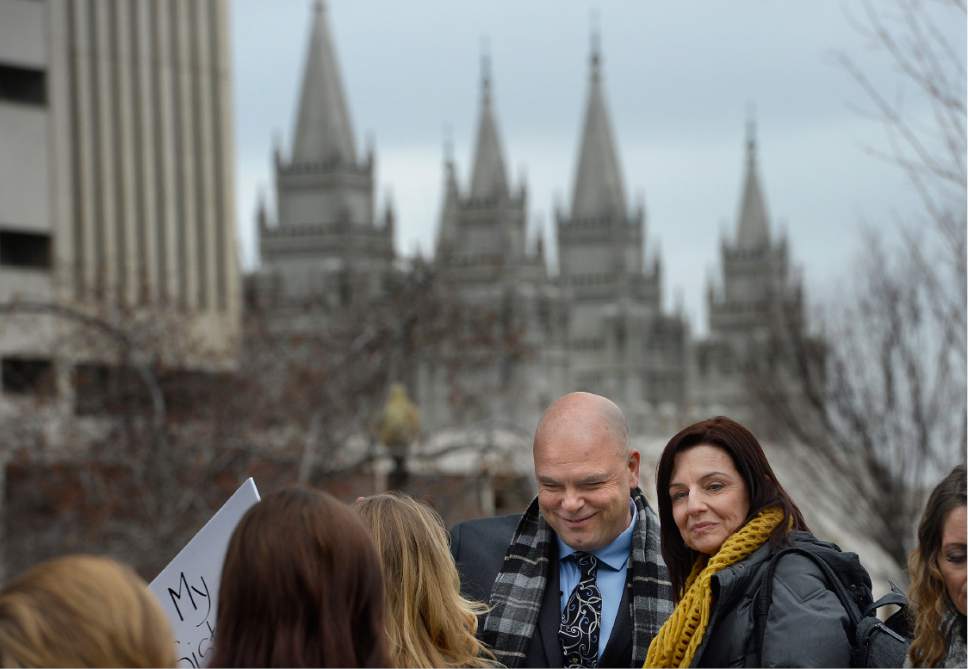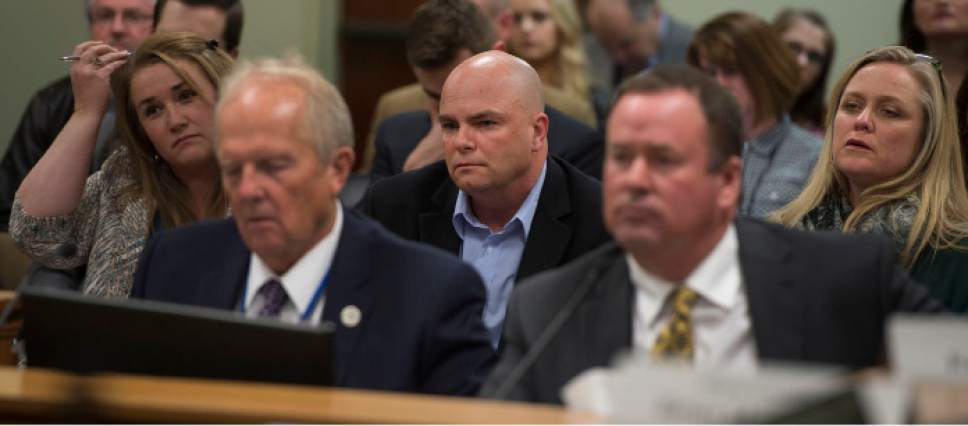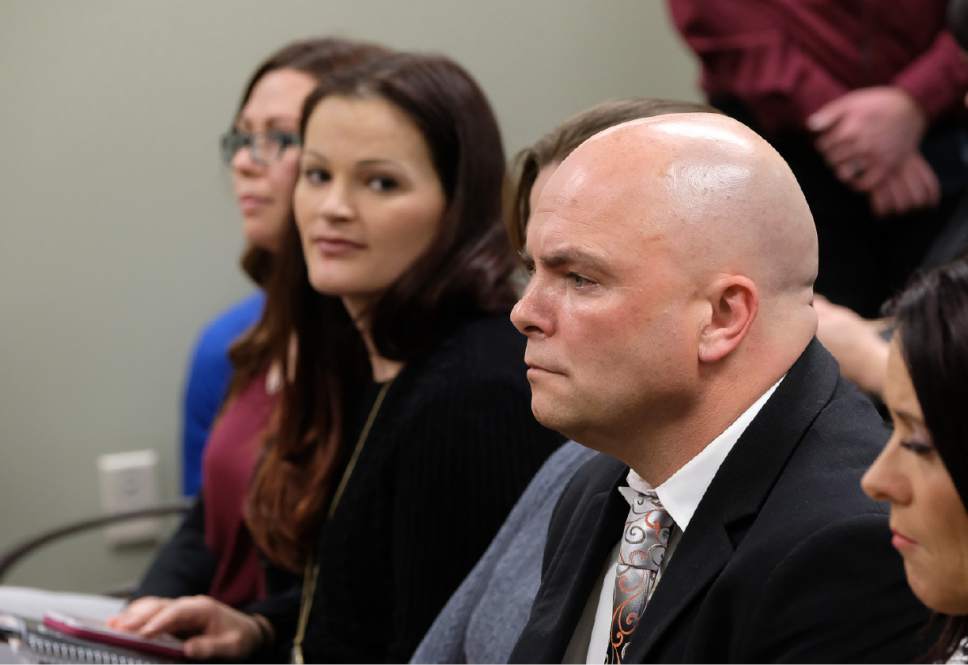This is an archived article that was published on sltrib.com in 2017, and information in the article may be outdated. It is provided only for personal research purposes and may not be reprinted.
Gov. Gary Herbert on Tuesday signed a bill that keeps polygamy a felony in Utah and increases the penalties for polygamists convicted of committing frauds and abuses.
Herbert's approval of HB99 affirms the position Utah has held since statehood — that polygamy is against the law. Yet it's unclear how much of the bill will ever be used.
Polygamists and some sympathetic attorneys have said HB99 will be unconstitutional if it's applied to consenting adults who choose to live as such a family. Joe Darger, who has three wives and was the most vocal opponent of the bill, has dared prosecutors to charge him.
Darger doesn't think that will happen. After Herbert signed the bill Tuesday, Darger said the goal of HB99 appeared to be to keep polygamists silent by making their lifestyles a crime.
"This is more for persecution than it ever is intended for prosecution," the polygamist said.
The Utah attorney general's office and every county attorney who has been asked has said his or her policies are not to prosecute families like the Dargers. Assistant Attorney General Parker Douglas testified to the Legislature that prosecutors are concerned with polygamists who commit fraud and abuse.
The Sound Choices Coalition, which seeks to dissuade people from joining polygamous marriages and helps those seeking to leave them, issued a statement Tuesday night supporting the bill signing.
"Polygamy is an antisocial, unsustainable practice that hurts many, so we are pleased that the state of Utah has taken action to demonstrate that it takes the abuses of polygamy seriously," the statement said. "Polygamy has enjoyed de facto decriminalization for decades, and polygamists will continue to be in no danger of prosecution unless they commit other crimes. We trust that the attorney general's office will use this new law as it uncovers criminal activities within polygamist communities."
HB99 was a response to the lawsuit filed by the Brown family from the television show "Sister Wives." The Browns sued the state after Lehi police investigated them for bigamy.
Clark Waddoups, a federal judge in Salt Lake City, ruled for the Browns in 2013, saying Utah's bigamy statute, as applied to polygamists, is unconstitutional.
But the 10th Circuit Court of Appeals overturned Waddoups' ruling on the grounds that the Browns were never prosecuted. The U.S. Supreme Court declined to hear the case.
However, polygamists and people opposed to polygamy seem to think Waddoups' legal analysis, though not binding, was accurate.
HB99 attempted to address Waddoups' concerns. It added criteria for bigamy prosecution: The offender would have to live with the extra spouse and "purport" to be married. State law required only one or the other.
The new law keeps the offense a third-degree felony punishable by up to five years in prison, but the penalty could increase to 15 years if bigamy is prosecuted in conjunction with crimes such as abuse, fraud or human smuggling. Anyone leaving a polygamous marriage and reporting abuse or protecting a child would receive amnesty.
The bill had the support of anti-polygamy organizations as well as a few former plural wives and children of polygamists who say they lived in households that were abusive and polygamy was to blame. Some lawyers who have represented people leaving polygamous homes support the bill, too.
The Church of Jesus Christ of Latter-day Saints, which officially abandoned polygamy in 1890 and excommunicates members found practicing it, also issued a statement supportive of HB99.
The LDS Church and its tenets were evoked during the debate on HB99. The bill's sponsor, Rep. Mike Noel, R-Kanab, stood on the House floor and compared polygamous sects to organized crime, saying people who refer to themselves as fundamentalist Mormons are apostates.
Noel's words could be used in a lawsuit showing that the Legislature sought to target a religious minority, says Ken Driggs, a semiretired attorney in Atlanta who has studied polygamy and the law. He sent Herbert a 16-page memo urging a veto.
But, Driggs has said, any plaintiff would probably need what the Browns didn't have — a prosecutor charging him or her with bigamy.
Herbert signed the bill five days after another television show about Utah polygamists premiered. "Three Wives, One Husband," is a documentary series broadcast on British television.
One of the show's focal points, Enoch Foster, on Tuesday said he was disappointed Herbert signed the bill, but he believes the way polygamists went to the state Capitol and lobbied their legislators will keep them politically active and will one day lead to removing the criminal penalties for polygamy.
"While we clearly lost the battle," Foster said, "at the same time, there's some victories in it, I think."
Twitter: @natecarlisle







